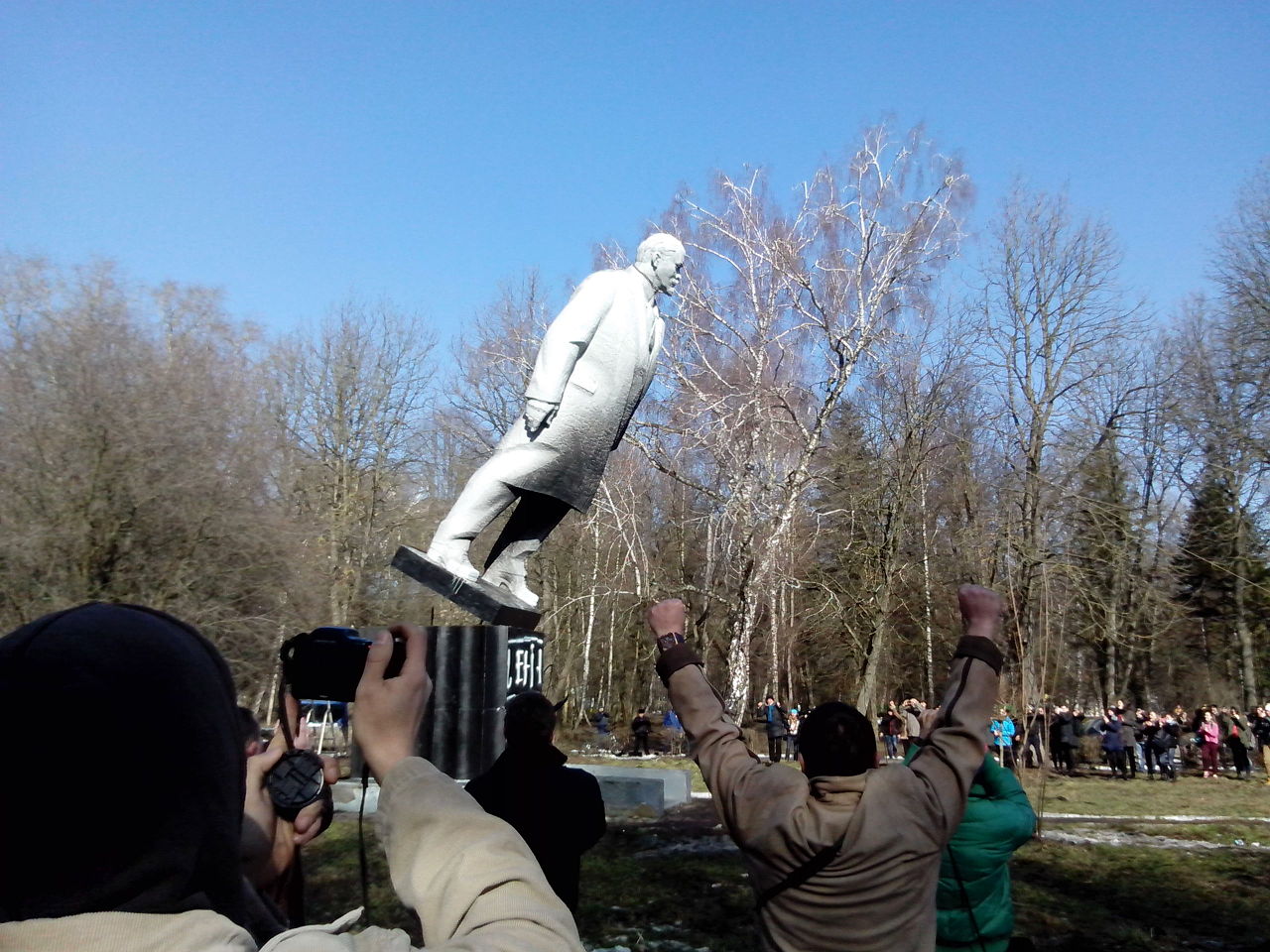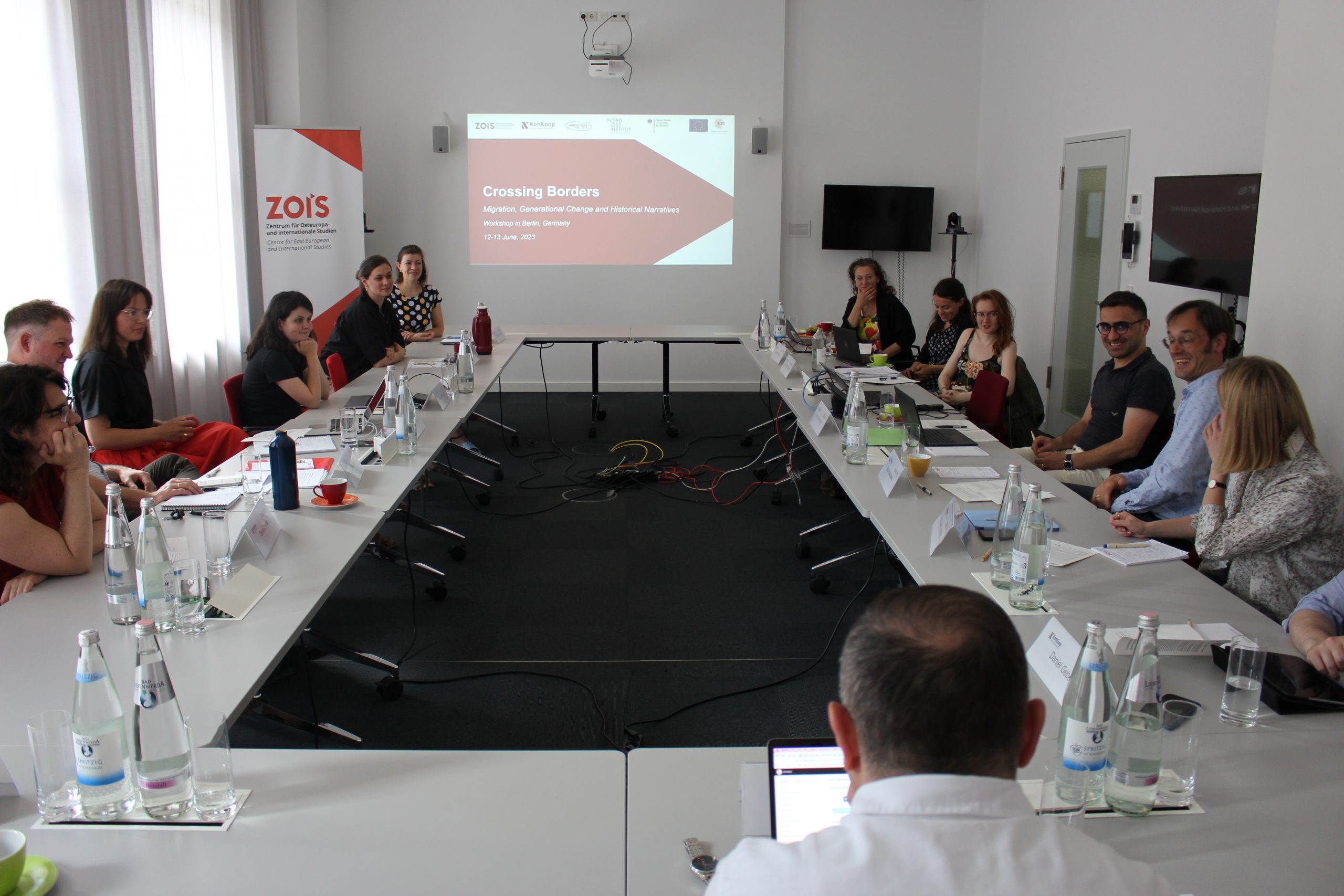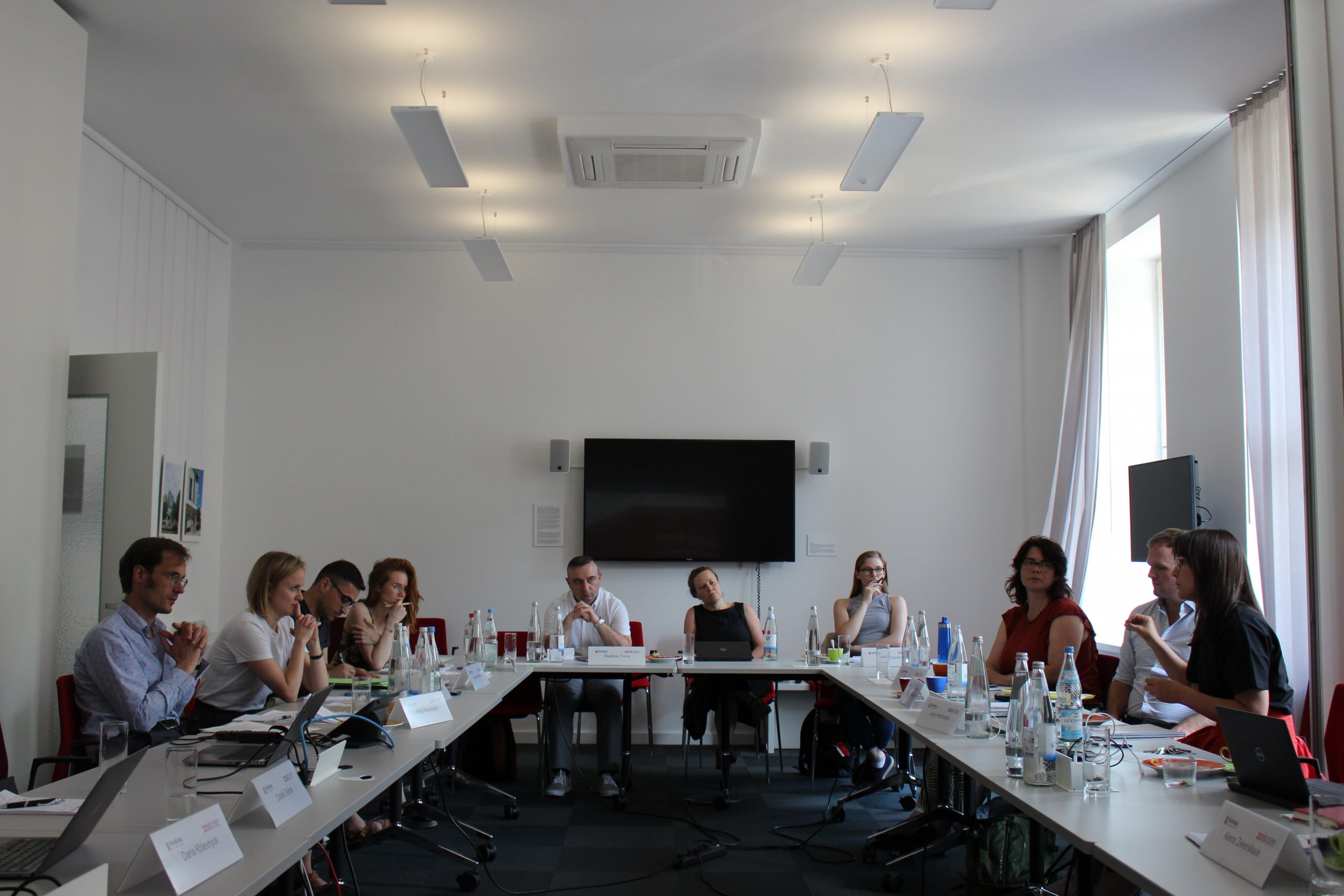
- This event has passed.
WORKSHOP: Crossing Borders – Migration, Generational Change and Historical Narratives
June 12, 2023 @ 2:00 am - June 13, 2023 @ 4:00 pm UTC+1

Toppling of Lenin statue in Khmelnytsky park, Ukraine, 2014 (c) Volodymyr D-k, CC BY-SA 3.0
Organisation: Félix Krawatzek (ZOiS)
Mobility and generational change contribute significantly to changes in collective memories and reconfigure the associated spaces thereafter. When people move, traces of previous memories travel with them and become embedded in new places, shaping their social experiences, interactions, and perceptions of local and global contexts. Having to negotiate between different temporalities and value regimes that may be contradictory between ‘here’ and ‘there’, people develop their own hybrid understandings of the past. In this process, the past itself changes its meaning and established narratives might find themselves challenged. Generational change is another important factor behind new social visions and the ways in which people handle time, leading to further reconfiguration of historical realities.
The full-scale Russian invasion of Ukraine has revitalised debates around the post-Soviet region’s past, the present and future projects, as well as the historical relations between the people living across the territory. The forced migration of Ukrainians to nearby Poland, the Baltic States, Germany or countries further afield, as well as migration of Russians to Georgia, Kazakhstan, and beyond, have transformed the landscape of historical memories and relationships in those countries. This new context has exposed numerous intergenerational and interspatial fissures regarding the narration of history and oftentimes led to controversial approaches to dealing with diverging visions of the past. In Germany, for example, debates about a responsibility to deliver – or not to deliver – arms to Ukraine often refer to the country’s history of Nazism, whereas references to the fragile European peace achieved with the 1919 Treaty of Versailles serve as a reference point for German discussions about how to proceed with Russia after the armed conflict. Meanwhile, in Poland the arrival of millions of Ukrainians has regenerated memories of the violent inter-state history that the two countries share, especially during the latter half of World War II.
The workshop is a collaboration of the following projects:
► Conflict and Kooperation in Eastern Europe: The Consequences of the Reconfiguration of Political, Economic, and Social Spaces since the End of the Cold War (KonKoop) – funded by the BMBF Konflikt und Kooperation im östlichen Europa. Die Folgen der Neukonfiguration politischer, ökonomischer und sozialer Räume seit dem Ende des Kalten Krieges (KonKoop) (zois-berlin.de)
► Moving Russia(ns): Intergenerational Transmission of Memories Abroad and at Home (MoveMeRU) – funded by ERC
► Ambivalences of the Soviet – Research Network 2020-2023 funded by the Niedersächsisches Vorab/Volkswagen Foundation
Verbundforschungsprojekt „Ambivalenzen des Sowjetischen, 1953-2023“ (uni-goettingen.de)
Vertreten durch das Nordost-Institut, Institut für Kultur und Geschichte der Deutschen in Nordosteuropa (IKGN e. V.) https://www.ikgn.de/
Read the report on HSozKult
Programme
12 June 2023
1.00 pm Opening remarks
1.30–3.00 pm Generational Memories and Change
Darja Klingenberg (European University Viadrina, Frankfurt (Oder)): Reframing, Adapting and Uncovering. Post-Soviet Jewish Memory Cultures in a German Migrant Society
Veronika Pfeilschifter (ZOiS): Political Ideologies, Socio-Political Memories and Imaginaries of (In-)justice: Critical Perspectives From the 90s Leftist Generation in Georgia
Hakob Matevosyan (ZOiS): Intergenerational Political Identifications: Family Traditions and Memories of Youth
Chair: Félix Krawatzek
3.00–3.45 pm Coffee Break
3.45–5.45 pm The Other in Domestic Memory
Lena Hercberga (University of Bristol): ‘Homo Sovieticus’ still alive? Performing Dual Mentality Among Young Russian Speakers in Latvia
Daria Khlevnyuk (University of Amsterdam): Digital Conspirational Memory of the USSR’s Dissolution: CIA, Zionists, and Other Suspects
Félix Krawatzek (ZOiS): Memory from below and the Making of a National Space
Daniel Gebel (BKGE, Oldenburg): Longing for the ‘Space of Exile’. Siberia and Central Asia in Collective and Individual Memory‘
Chair: Alina Jašina-Schäfer
13 June 2023
9.00–11.00 am Socio-Spatial Transformations
Matthew Blackburn (NUPI, Oslo): The End of the “post-Soviet”: New Challenges in the Transnational Study of Identity Formation, Generation and Migration
Viktoria Sereda (PRISMA UKRAÏNA): Displacement, Memory and Belonging in Ukraine After 2014
Alina Jašina-Schäfer (University of Mainz/ BKGE, Oldenburg): The Weight of Another Place and Time: Migration and Post-Socialist Imaginations in Germany
Ekaterina Mikhailova (IOS Regensburg): Subverting the “Slavic Unity”: A Story of a Hijacked Festival at the Ukraine-Belarus-Russia Border
Chair: Hakob Matevosyan
11.00–11.15 am Coffee Break
11.15 am–12.45 pm Migration and Displacement
Malkhaz Toria (Ilia State University, Tbilisi): Memories of Critical Events after Forced Displacement: Life Stories of IDP “Memory Specialists”
Alena Zelenskaia (University of Munich): Memories About the Soviet After 2022: How Elderly Ukrainian Refugees in Germany Remember the Past
Olena Zinenko (Kharkiv National University/European University Viadrina, Frankfurt (Oder)): Streaming Online Memories in Times of War: The Ukrainian Discourse in Social Media
Chair: Veronika Pfeilschifter
12.45–1.45 pm Lunch
1.45 pm–3.00 pm Way forward

Impressions from Workshop “Crossing Borders”, ZOiS, 2023 (c) Philipp Zimmermann/ ZOiS

Impressions from Workshop “Crossing Borders”, ZOiS, 2023 (c) Philipp Zimmermann/ ZOiS
